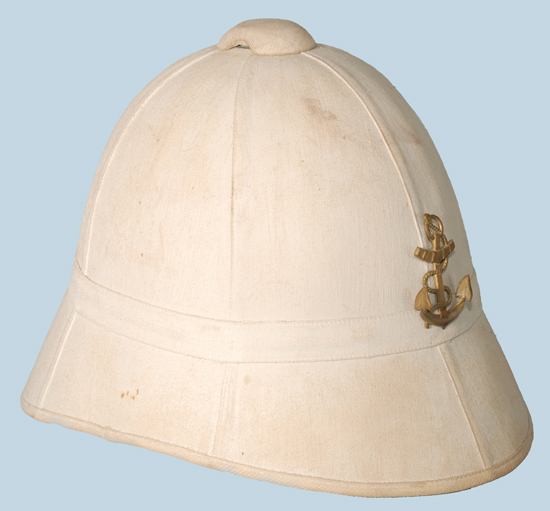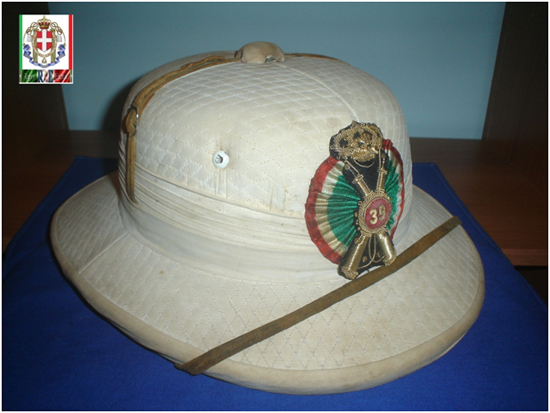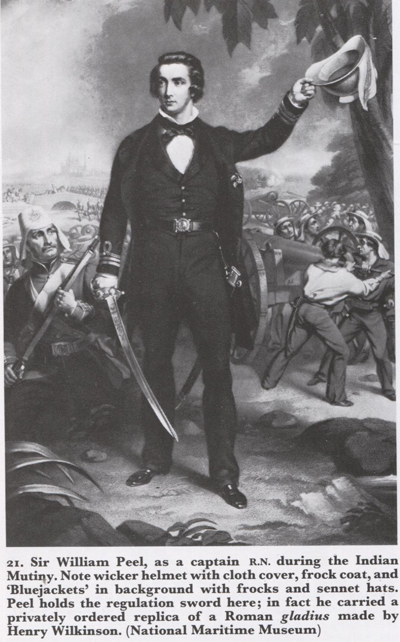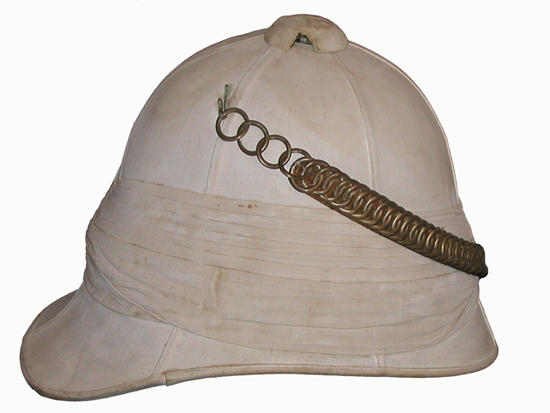Just at the colonial pattern sun helmet remains an iconic image of Britain’s “Soldiers of the Queen,” this style helmet was worn by the French forces in far flung conflicts. And whereas the British pattern seemed to evolve with numerous nuances and differences in a plethora of patterns and variations, the French military relied on basically two colonial patterns. Continue reading
The British Colonial Pattern Helmet
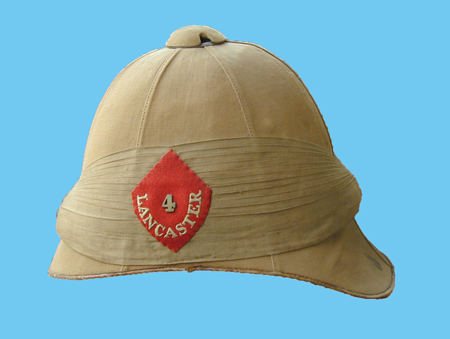
A 2nd Boer War example of a khaki Colonial helmet with flash to the 4th or Royal Lancaster Regiment. (Author’s collection)
The Colonial Pattern helmet was officially introduced for use by the British Army in 1877 1 although it had been worn in India several years prior to that date. Continue reading
Desert Stories: Helmet of Captain Emilio Casalgrandi
Sun Helmets in the Royal Navy
Although not officially established as part of a tropical uniform for officers until 1885, the sun helmet was used unofficially as far back as the Indian Mutiny (1857-1858). It was described as being a “white helmet with blue pagri.” 1 Continue reading
Guardia Nacional/Fuerzas de Defensa de Panama Sun Helmet
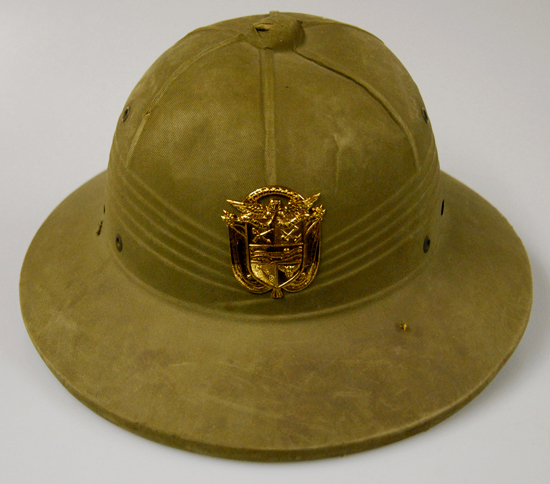 The tropical climate of Panama is one where sun helmets are truly practical. Thus it is not surprising that the Panamanian Defense Forces did use some American pressed fiber sun helmets prior to, and even during, the December 1989 U.S. invasion of Panama known as Operation Just Cause.
The tropical climate of Panama is one where sun helmets are truly practical. Thus it is not surprising that the Panamanian Defense Forces did use some American pressed fiber sun helmets prior to, and even during, the December 1989 U.S. invasion of Panama known as Operation Just Cause.
This operation occurred to depose Panamanian leader, general and dictator Manuel Antonio Noriega – the nation’s Maximum Leader – and to safeguard American lives and interests in Panama. Continue reading
Japanese Helmet Box
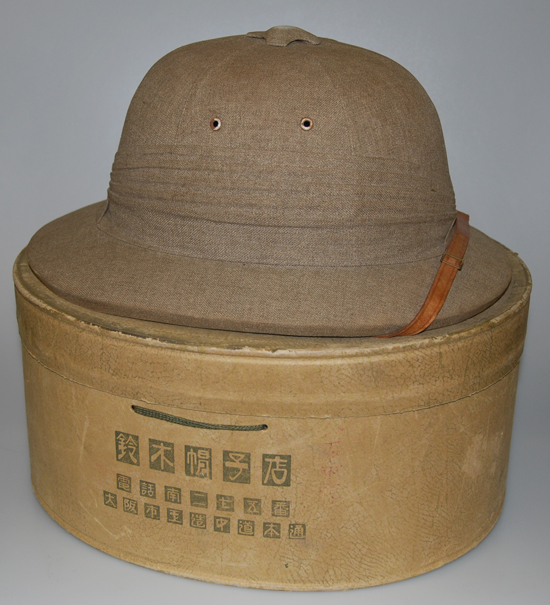 When thinking of a Japanese helmet box one probably has an image of a lacquered box. The concept of “Japanning” dates to the 17th century when Europeans would imitate Asian lacquerwork. Ironically much of the lacquering was actually not Japanese in origin, but rather Chinese. However the Japanese version – called urushi – did remain popular through the 19th- and 20th- centuries. So when one things of a Japanese box for a helmet it again like conjures the image of such a box. During the 1930s and into the early 1940s it wasn’t such a lacquered box that one might use for transporting a sun helmet. It was more likely a cardboard box. Continue reading
When thinking of a Japanese helmet box one probably has an image of a lacquered box. The concept of “Japanning” dates to the 17th century when Europeans would imitate Asian lacquerwork. Ironically much of the lacquering was actually not Japanese in origin, but rather Chinese. However the Japanese version – called urushi – did remain popular through the 19th- and 20th- centuries. So when one things of a Japanese box for a helmet it again like conjures the image of such a box. During the 1930s and into the early 1940s it wasn’t such a lacquered box that one might use for transporting a sun helmet. It was more likely a cardboard box. Continue reading
Sun Helmet of Major C. Venables-Llewelyn of the Glamorgan Imperial Yeomanry
Objects of militaria are often a link back in time. However, all too often we hear, “if only this piece could tell its stories.” This of course will never happen, but occasionally we get lucky and are able to do some historical research and find out a bit more about a particular item. No longer do we think of a vague shadowy figure who may have worn the uniform, but we can find out a bit more about the original owner.
This is the case with a British Foreign Service Helmet, and storage tin that was once owned by Sir Charles Venables-Llewelyn of the Glamorgan Imperial Yeomanry. Inside the helmet are the stamped letters “C. V. L.,” whilst the tin is marked to a “Major C. Venables Llewelyn.” Continue reading

